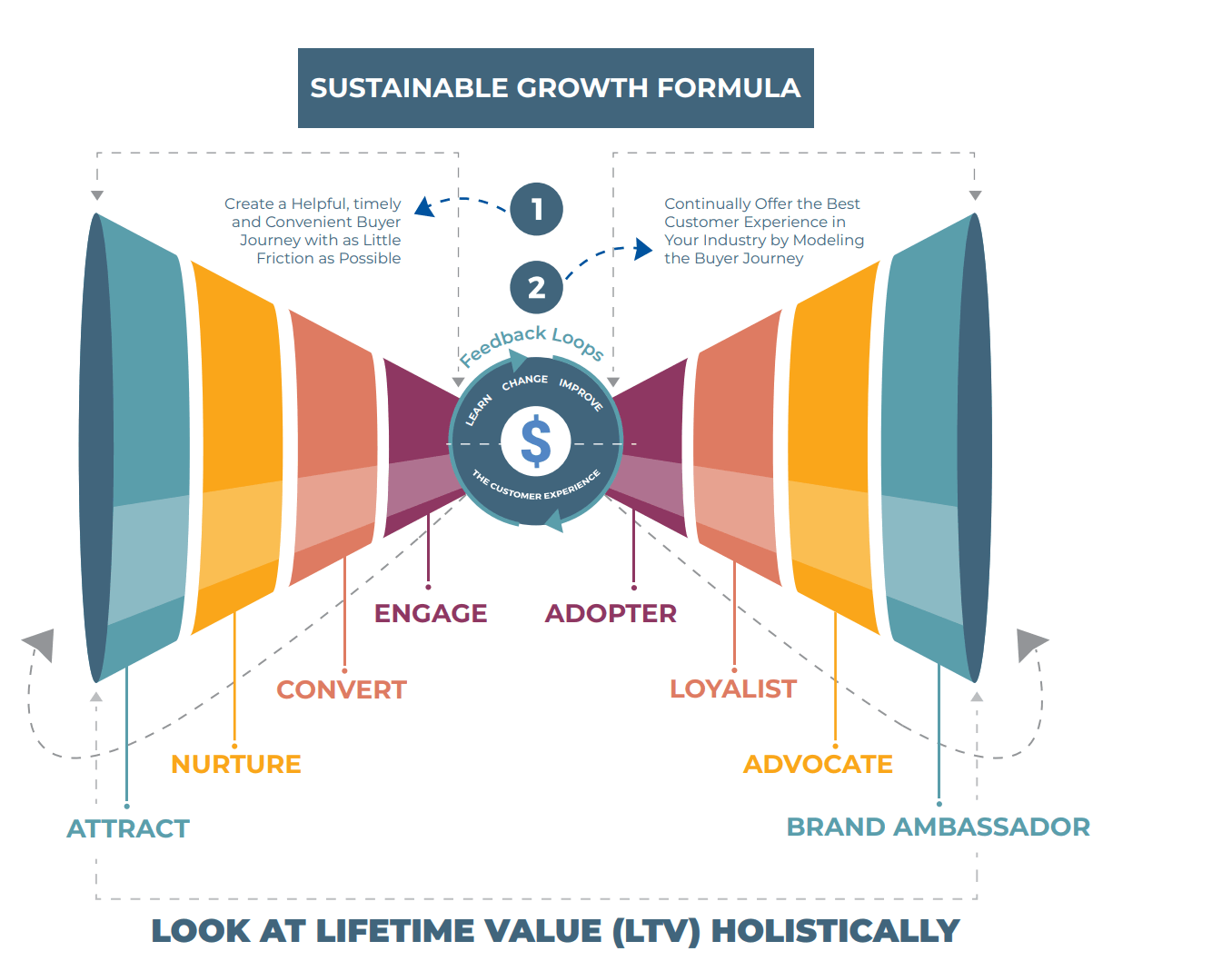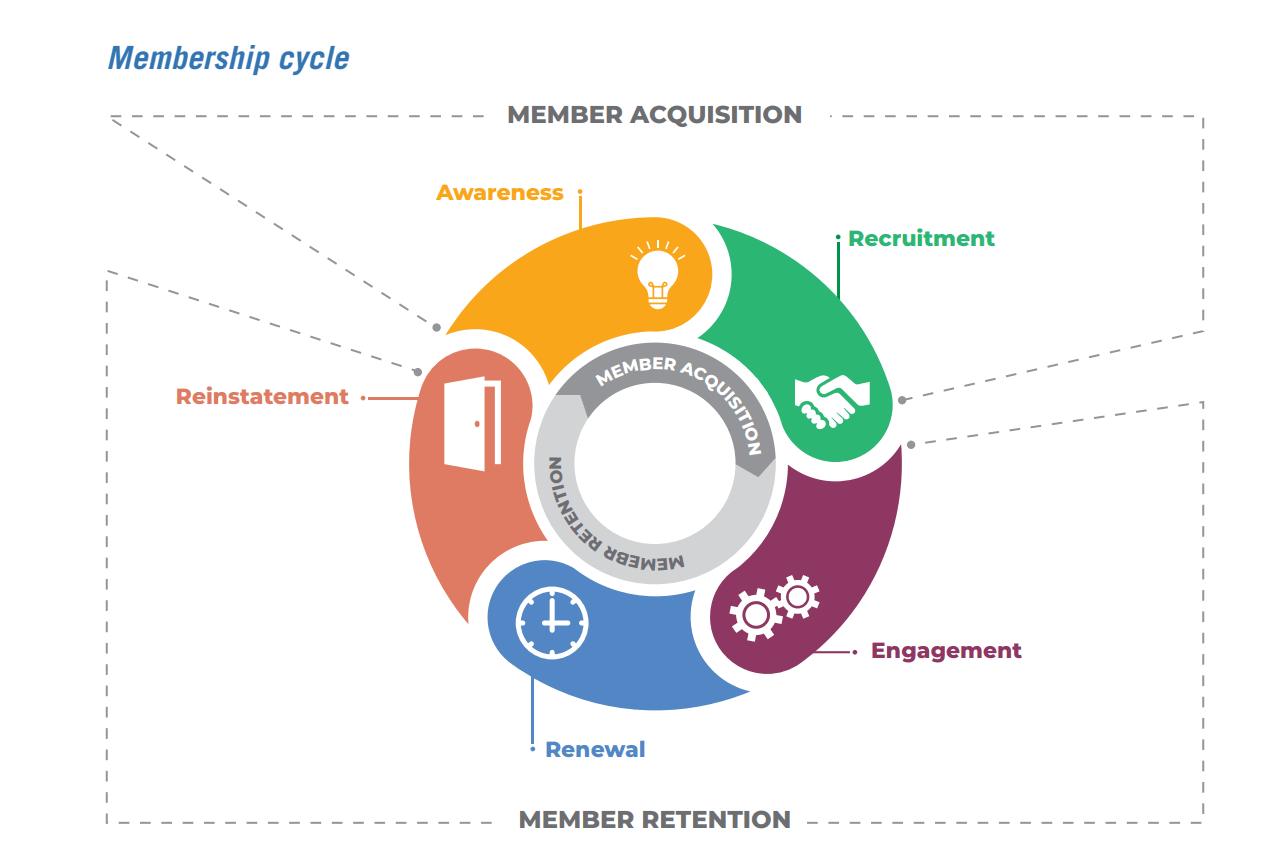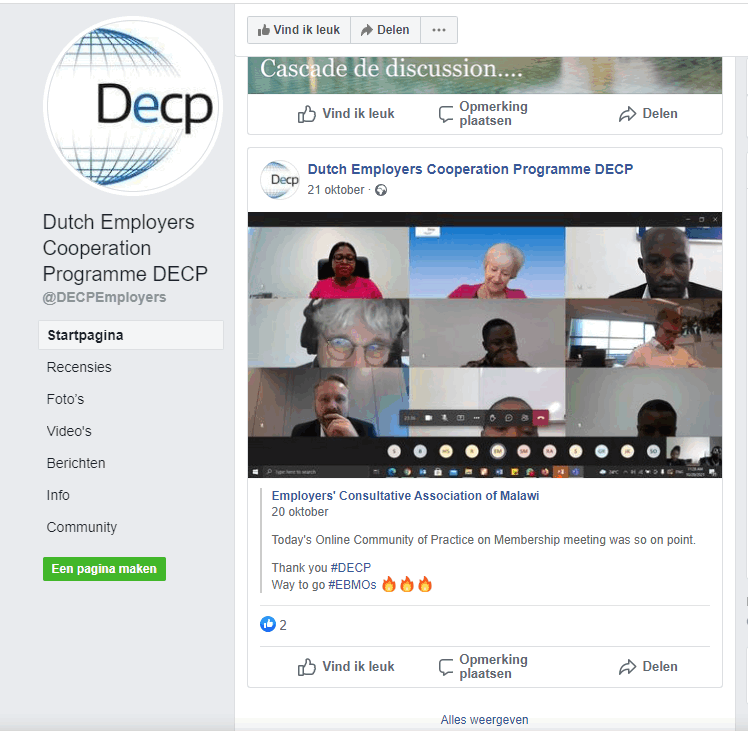

DECP AND AFRICAN EMPLOYERS ASSOCIATIONS START WITH COMMUNITY OF PRACTICE ON MEMBERSHIP
The increase of membership numbers is a daily and major preoccupation of employers organisations. Logical and justly. Membership numbers are determining in many ways the work, the success and the future of employers organisations. DECP and partners in Africa started a regular online exchange to inspire concretely membership policies.
The membership level determines the representativeness of the organisation and its legitimacy to speak on behalf of the business community. Small is beautiful but may not fully apply in a world where large membership is determining the easiness of access and the level of influence on external stakeholders, which are decisive in shaping the environment for businesses influence and power.
Membership also determines income and revenue and the capacity to serve members well: higher membership brings higher contributions and also creates a loyal client base for its paying services and thus income to serve members better. In short, the development of successful membership policies and strategies is a question of pivotal importance, if not of life and death for any organisation.
In the DECP approach, support for membership policies has always been, since its creation in 2006, a central point of attention, although even more explicit in 2021-2022 where membership is one of the 2 pillars of programmatic action in all countries.
This support has been and is continuously achieved via the organisation of advice and trainings on this vast subject: improvement of the value proposition of employers organisations via providing quality services for members; improvement of lobbying and advocacy; development of membership policies; communication and visibility enhancement, etc. Also the creation of practical tools has been used to enhance higher membership via better management of members: the development and installation, with ITC-ILO, of CRM systems to manage members, which is now operational in all 22 DECP partner organisations. And via the publication of an comprehensive guide on membership strategies published this year (see https://www.decp.nl/publications/manual-on-membership-strategies-and-policies-40059 ), which reflects the many examples and cases collected during the many trainings and exchanges.
A recent initiative is now further completing the toolbox of support. It started in October: the creation of a community of practice on membership. This community, composed of about 30 staff members of the 6 English speaking partner organisations of DECP in Africa, who are all specialists dealing with membership, meets once a month, online, in a meeting of 1 to 1,5 hour.
The agenda is simple: a monthly exchange of each organisation’s recent developments, initiatives, novelties, good (and bad) practices related to recruitment, engagement or retention of members. Next to this, every meeting also explores more in depth one particular theme, which is important in membership policies. In the two last meetings, we concentrated on exchanging on the role of social media in membership policies. Mr. Eric Heideman, in charge of social media at the Dutch employers organisation AWVN, also joined the exchange. He was impressed by the widespread use of social media and the current practices, of which he took some on board for his own work. On his side he added some well appreciated tips and tricks to the attention of the East African colleagues. Useful many ways exchange: South South , North South and South North.

In future meetings, other themes will be discussed. Which ones precisely will be determined by the members, but a whole range of possible themes lies on the priority voting table:
- the concrete organisation of account management
- how to improve active engagement of members
- how to extend and improve the recruitment of branch associations
- websites as a tool for recruitment and engagement
- revitalise dormant members
- tips for re-activation and renewed payment
- membership boosting for SME’s
- membership of the informal sector
- other possible actions
All themes which look very promising and interesting for our future sessions.
The key final question is of course: does this help? Is there a continuous progress in membership levels? Of course not only by one particular initiative such as this one, but in the longer run.
The simple answer is yes. Over a longer period, we see indeed an annual increase of membership at an average annual rate of 2% to 3%; this positive trend was suspended briefly, but fortunately not fundamentally reversed in the Covid year 2020. And of course we must nuance, as there are country variations also, whereby some countries are more successful than others. That is the good news, especially also noting that the growth is higher if one looks at the figures of paying members.
Is it good enough news? No. All will agree that a higher growth rate is needed to achieve what the employers’ associations stand for: to become the representative voice of all business in order to be able to create a better environment in which business can flourish and create growth and welfare for all. But as we all know, Rome was neither built in one day. Or as those same Italians would say: ché va piano, va sano, va lontano ; what goes steadily, goes healthy, goes far.

ECAM, the employers' organisation of Malawi, expressed its appreciation of this activity on Facebook